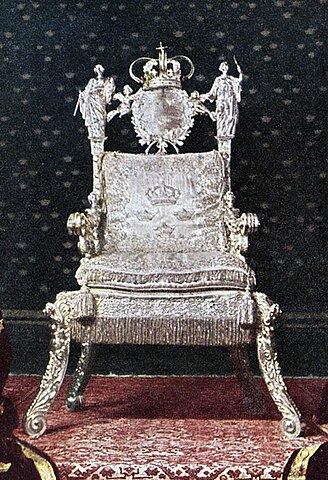20 March, 2016
The Goblin Emperor by Katherine Addison (Sarah Monette)
1. This book disappointed me only in that it ended. I wanted it to keep going and, though I understand the author has said there will be no sequel, I look forward to rereading this someday. This is one I want in hardback. So, I’m a fan. But let me step back and examine why I am a fan.
2. The writing allows engaging sentence structures to illuminate the entire text—less so in dialogue, but I think that makes sense due to the often direct nature of dialogue. Between the quotes, the sentence structure simplicity is tempered by the main character getting confused with words and forming more complex sentences with retractions, retractions of retractions, and awkward admissions of fault. So even the simplicity in dialogue gets more complex than standard sentence structure. Outside the quotes, the consistent variety of structures ensure that I do not bore. I only remember one sentence that didn’t make sense to me on first read, out of five hundred pages.
3. The word choices are a bit more strange. There are a few words I’m pretty sure I’ve never heard before, and I wonder if some of that is thesaurus driven. Also, all the thees and thous in dialogue are awkward at first—not overpowering, but noticeable. But I think that initial awkwardness, and the over-the-head word choices, are intentional to put the reader into the same mental state as the eponymous Maia: he is overwhelmed and confused and awkward. And the language becomes more natural as the novel progresses and he gets his feet under him, so to speak. It’s actually an effective tactic, but it could bounce readers off in the first hundred pages or so.
4. Maia’s transition is the theme to me: from friendless, even acquaintance-less, awkward eighteen year old rural boy suddenly in favor at court but completely out of any element or depth with which he has prior experience; to effective, intentional, hopeful nineteen year old man worthy of appreciation and the favor arbitrarily bestowed on him earlier. He doesn’t solve everything—this isn’t a perfect human like Mary Soon Lee’s king seemed to be. Maia is still flawed, still hated by some he would like to be friends with, and still out of his depth and scared—but less so at the end. And that process he goes through is the central thrust and plot of the novel. He slowly realizes who he can trust, how he can show his trust, who he respects but disagrees with, who he cannot trust and how far he cannot trust them, what his goals and job are, and what he can and cannot do. When it ends he still has some regrets, but there is also hope. This novel is not just the first hundred days of his reign, or whatever the time period involved is; it’s not just Maia’s job training; it’s Maia coming of age. But not through sex or drugs or violence, rather through being able to recognize relationships and realizing what he needs to continue living sanely. This is an always applicable theme, though the specifics of being emperor are not quite applicable: it’s about being in a new situation with new people and learning how to thrive.
5. The plot does not rely upon violence, sex, or conspiracy—though violence opens the novel and there is some within, I am happily surprised by how little violence actually exists in this novel. There are two conspiracies against Maia, but they are not the focus. The focus rests upon Maia and most of the novel is a day-to-day discussion of his activities and inactivities. It’s sort of just Maia existing and making decisions about situations and people that arise in his path. Yes, the plot begins with a murder, but the plot then drops violence entirely for a couple of hundred pages before two more violent actions occur on-screen. Then no violence through the end. I found this book’s plot wonderfully paced and refreshingly honest to life, which for me is generally non-violent, non-conspiratorial, and not overly sexed.
6. Maia is a wonderful character: well built and distinct without being overly reliant on tropes. I was afraid this was going to be a book all about race relations, but it doesn’t end up being that. It ends up being about Maia and, yes, race is a part of that discussion. But Maia isn’t only race. He’s an emperor: he demands certain things and there are certain demands upon him. This is all communicated through Maia’s thoughts, his wishes, his words, and his actions. But Addison has such a strong, consistent conception of him, that they all support each other. She doesn’t feel the need to beat the reader over the head with anything, just states it and moves on. Though some things repeat, it is because they are important, not because she mistrusts the reader’s intelligence. Maia is a Mary Wollstonecraft feminist—believing that mentally women are just as capable as men at intellectual pursuits and it’s a matter of training, not nature, that makes them inferior scholars, for example. Maia tries to build bridges and accommodate others’ wishes, rather than make enemies and dwell upon differences. Maia is conscious of his failings and attempts to fix them, rather than changing the situation to his benefit. He’s the kind of guy who believes he can do better and actively strives for it, would rather take fault upon himself than see innocents get blamed, and is aware that expertise doesn’t come in a minute or a day. Despite all this, he’s an emperor and he acts like one. He’s not some weird egalitarian, postmodern emperor: he’s an emperor with all that comes with being that, but not a tyrant.
7. And that’s really all there is to say here. It hits so many things so well that I’m always wishing speculative fiction would do better, without pandering to current philosophy or cultural criticism. It’s a story of one man in a hard place, trying to do good, and it’s universally applicable for that. He doesn’t always win and he isn’t perfect, but this journey of mental development that he takes is wonderfully engrossing. Even Addison’s misses—word choices and tone—can be viewed as building Maia’s character, and that’s brilliant. I’m a big fan of this novel. Based simply on this book and The Three-Body Problem, Addison got robbed for the Hugo in 2015 because this was much more applicable, interesting, and well-told—though some of that may be the difference between Western and Chinese narrative tradition, as noted in my notes on Cixin Liu’s novel. If you need violence and sex for excitement in a novel, this isn't for you. If you appreciate deep, applicable character study, this is your book.
Labels:
2014,
Fantasy,
Katherine Addison,
Locus Award,
Sarah Monette
Subscribe to:
Post Comments (Atom)





.jpg/640px-2008-04-12_Freilichtmuseum_Detmold_(11).jpg)

No comments:
Post a Comment